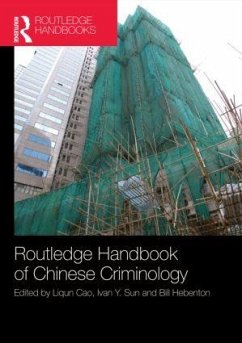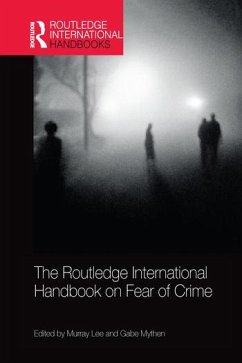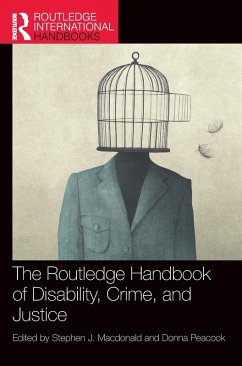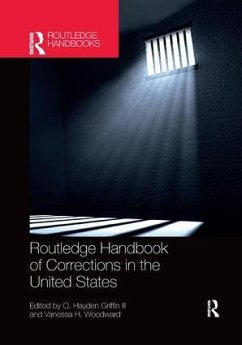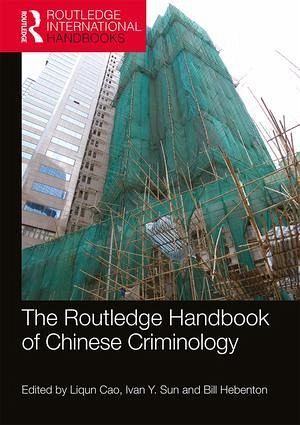
The Routledge Handbook of Chinese Criminology
Versandkostenfrei!
Versandfertig in 1-2 Wochen
64,99 €
inkl. MwSt.
Weitere Ausgaben:

PAYBACK Punkte
32 °P sammeln!
As the world's second-largest economy, China has made great progress in developing criminology. The Routledge Handbook of Chinese Criminology aims to be a key reference point to summarize the large body of literature in both Chinese and English about various aspects of crime and its control in China for international scholars with an interest in the development of criminological research on and in the Greater China region, and for everyone with a broad interest in international criminology. The editors of the Handbook have selected authoritative contributors recognized for their research and s...
As the world's second-largest economy, China has made great progress in developing criminology. The Routledge Handbook of Chinese Criminology aims to be a key reference point to summarize the large body of literature in both Chinese and English about various aspects of crime and its control in China for international scholars with an interest in the development of criminological research on and in the Greater China region, and for everyone with a broad interest in international criminology. The editors of the Handbook have selected authoritative contributors recognized for their research and scholarship on China, Taiwan, Hong Kong, and Macao. This Handbook consists of five sections: an account of the development of criminology as an academic discipline in modern China, as well as some of the unique theories, strategies, or philosophies of crime control that have emerged; an analysis of the criminal justice system in China, including the police, the courts, corrections, juvenile justice, and the death penalty; an exploration of the issues and problems in conducting research in China; reflections on the nature of crime and criminality in China, including drugs, prostitution, human trafficking, corruption, floating population, domestic violence, and white-collar crime; and an account of crime and criminal justice in Taiwan, Hong Kong, and Macao. The book presents a coherent and comprehensive collection of essays on current research and theory in criminology, crime, and justice in China and Greater China, and the Editors' Introduction and Conclusion provide further contextualization of the Handbook's key themes.





